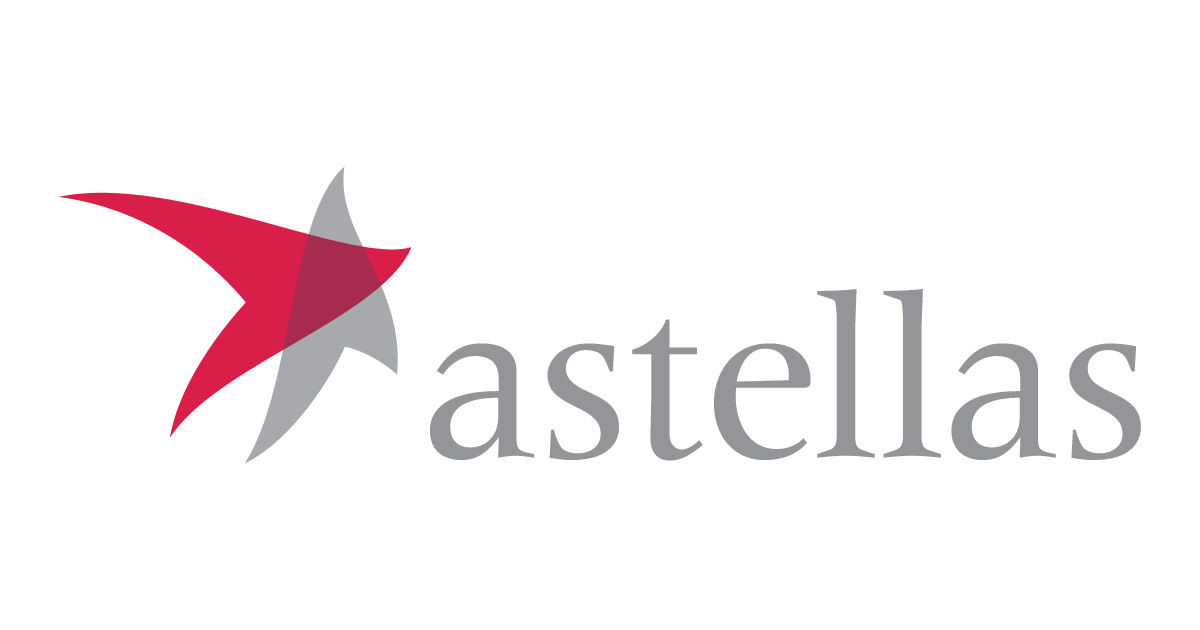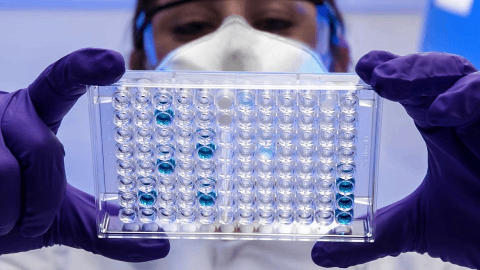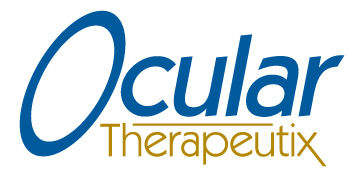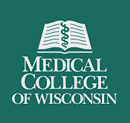预约演示
更新于:2026-02-27

Astellas Pharma, Inc.
更新于:2026-02-27
概览
标签
肿瘤
泌尿生殖系统疾病
消化系统疾病
小分子化药
ADC
双特异性T细胞结合器
疾病领域得分
一眼洞穿机构专注的疾病领域
暂无数据
技术平台
公司药物应用最多的技术
暂无数据
靶点
公司最常开发的靶点
暂无数据
| 排名前五的药物类型 | 数量 |
|---|---|
| 小分子化药 | 74 |
| 腺相关病毒基因治疗 | 17 |
| 单克隆抗体 | 7 |
| 未知 | 5 |
| 化学药 | 4 |
关联
154
项与 Astellas Pharma, Inc. 相关的药物靶点 |
作用机制 CLDN18.2抑制剂 [+2] |
在研适应症 |
最高研发阶段批准上市 |
首次获批国家/地区 日本 |
首次获批日期2024-03-26 |
靶点 |
作用机制 C5抑制剂 |
非在研适应症 |
最高研发阶段批准上市 |
首次获批国家/地区 美国 |
首次获批日期2023-08-04 |
1,401
项与 Astellas Pharma, Inc. 相关的临床试验NCT07425808
Gilteritinib in Combination With Azacitidine and Venetoclax Compared to Induction Chemotherapy "7+3" in Combination With a FLT3-inhibitor in Fit, Newly Diagnosed, FLT3-ITD Mutated Adult AML Patients: a Randomized Trial of the EORTC Leukemia Group and GIMEMA.
This international, multicenter, randomized (1:1), open-label phase II/III trial will evaluate the efficacy and safety of gilteritinib combined with azacitidine and venetoclax (experimental arm) versus standard "7+3" induction plus a FLT3inhibitor (quizartinib or midostaurin) (control arm) in newly diagnosed FLT3-ITD mutated AML patients eligible for intensive chemotherapy.
开始日期2026-12-01 |
NCT07139977
Open-Label Phase II Trial of Enfortumab Vedotin in Recurrent or Persistent Endometrial Carcinoma
This study is testing a drug called enfortumab vedotin in up to 12 patients with advanced endometrial (uterine) cancer that has worsened after previous treatments, including immunotherapy. The goal is to see how well the drug works and how safe it is. Patients will be treated for up to one year and followed over time to monitor their health and response to the treatment.
开始日期2026-04-01 |
申办/合作机构 |
NCT07417137
A Longitudinal Natural History Study of Adults and Children With Angelman Syndrome
The goal of this observational study is to learn about the natural progression of Angelman syndrome (AS) in children and adults with a confirmed genetic diagnosis of AS. The main questions it aims to answer are:
* How do developmental skills, such as communication, motor abilities, and adaptive behaviors, change over a 1-year period in people with AS?
* Are there specific patterns in brain activity or sleep that are associated with changes in AS symptoms over time?
Participants will:
* Visit the study site 5 times over 1 year (approximately every 3 months) for assessments.
* Complete tests and questionnaires about development, behaviors, and sleep with the help of their caregivers.
* Undergo electroencephalograms (EEGs) to measure brain activity and wear a sleep-monitoring device at home (to collect actigraphy data).
* How do developmental skills, such as communication, motor abilities, and adaptive behaviors, change over a 1-year period in people with AS?
* Are there specific patterns in brain activity or sleep that are associated with changes in AS symptoms over time?
Participants will:
* Visit the study site 5 times over 1 year (approximately every 3 months) for assessments.
* Complete tests and questionnaires about development, behaviors, and sleep with the help of their caregivers.
* Undergo electroencephalograms (EEGs) to measure brain activity and wear a sleep-monitoring device at home (to collect actigraphy data).
开始日期2026-03-01 |
申办/合作机构 |
100 项与 Astellas Pharma, Inc. 相关的临床结果
登录后查看更多信息
0 项与 Astellas Pharma, Inc. 相关的专利(医药)
登录后查看更多信息
3,311
项与 Astellas Pharma, Inc. 相关的文献(医药)2026-03-01·PROSTATE CANCER AND PROSTATIC DISEASES
Survival benefit associated with first-line androgen receptor pathway inhibitors for de novo metastatic castration-sensitive prostate cancer
Article
作者: Freedland, Stephen J ; De Hoedt, Amanda M ; El-Chaar, Nader ; Evans, Claire ; Polascik, Thomas J ; Parrish, Joshua A ; Ramaswamy, Krishnan ; Hong, Agnes ; Kim, Janet ; Touya, Maelys ; Gu, Lin
Abstract:
Background:
Limited real-world data exist on the effectiveness of treatment intensification (TI) with androgen receptor pathway inhibitors (ARPI) in de novo metastatic castration-sensitive prostate cancer (mCSPC). This study compared outcomes of TI or first-generation nonsteroidal antiandrogens (NSAAs) to androgen-deprivation therapy (ADT) alone in US patients with de novo mCSPC.
Methods:
Veterans Affairs patients with de novo mCSPC (February 2018–June 2020) confirmed via chart review were grouped into ADT alone, ADT + NSAAs, or ADT + ARPI cohorts using predefined recruitment quotas. Outcomes included inverse probability of treatment weighting (IPTW)-adjusted overall survival (OS), progression to metastatic castration-resistant prostate cancer (mCRPC), and prostate-specific antigen (PSA) response.
Results:
A total of 384 patients were identified (ADT alone: 163, ADT + NSAA: 101, ADT + ARPI: 120). Median follow-up was 37.2, 38.1, and 34.8 months for ADT alone, ADT + NSAA, and ADT + ARPI, respectively. Compared with ADT alone, ADT + ARPI showed significantly better OS (HR [95% CI]: 0.61 [0.43 to 0.87],
p
= 0.007), lower risk of progression to mCRPC (0.46 [0.33 to 0.66],
p
< 0.001), and higher PSA response rate (PSA decline of ≥50% and ≥90% from baseline, and to <0.2 ng/mL and <0.1 ng/mL any time during first-line treatment; all
p
< 0.05). Outcomes with ADT + NSAA did not differ from ADT alone. ADT + ARPI was the most common second-line mCSPC and first-line mCRPC treatment.
Conclusions:
First-line ADT + ARPI was associated with significantly improved outcomes vs ADT alone in de novo mCSPC. These real-world results align with the benefits demonstrated in trials, supporting integration of TI with ARPIs into clinical practice to improve survival outcomes in patients with de novo mCSPC.
2026-03-01·Biological psychiatry global open science
Increased Tumor Necrosis Factor Superfamily Members in Neuroinflammatory Schizophrenia and Bipolar Disorder Midbrains
Article
作者: Sommer, Iris E C ; Hoeppner, Daniel ; Kracht, Laura ; Shaik, Suhaana ; Matsumoto, Mitsuyuki ; Alsema, Astrid ; Fayyazuddin, Amir ; Walker, Adam K ; Middleton, Frank ; Zhu, Yunting ; Mendez-Victoriano, Gerardo ; Webster, Maree J ; Kondo, Yuji ; Neuhaus, Layla ; Eggen, Bart J L ; Weickert, Cynthia S ; Puvogel, Sofía
Background:
Neuroinflammation is a key neuropathological finding in schizophrenia and bipolar disorder, as increased cytokines are found in the midbrain of these individuals. However, the most upregulated inflammatory cytokines and most activated downstream signaling pathway(s) are unidentified.
Methods:
We aimed to identify the most robust transcriptional change in the schizophrenia midbrain by bulk RNA sequencing (RNA-seq) and to confirm the cellular source and magnitude of change by single-nucleus RNA-seq, reverse transcriptase-polymerase chain reaction (RT-PCR), and immunohistochemistry in 61 healthy controls, 63 schizophrenia cases, and 33 bipolar disorder cases stratified into low- and high-inflammation groups.
Results:
By RNA-seq, the TNF superfamily (TNFSF) pathway messenger RNAs (mRNAs) were among the most changed in high-inflammation schizophrenia (all ps ≤ .01), with TNFSF receptors (TNFR1, TNFR2, and FAS) being most highly expressed in astrocytes and microglia. Using RT-PCR, we confirmed that 5 TNFSF receptor mRNAs (TNFR 1, TNFR 2, DR4, FAS, and TWEAKR, all ps ≤ .01) were increased in high-inflammation schizophrenia/bipolar disorder cases compared with low-inflammation controls. Furthermore, the means for mRNA encoding cell death-related proteins acting downstream of TNF receptors (P53, CASP1, CASP7, CASP8; all ps ≤ .05) were increased in high-inflammation schizophrenia, as were mRNAs encoding proteins regulating cell survival (BCL2 and MCL1, all ps ≤ .01). All 5 TNFSF receptor mRNAs positively correlated with effector protein mRNAs (all ps ≤ .05) and with the astrocyte-related marker GFAP mRNA (all ps ≤ .001).
Conclusions:
Our results suggest that TNFSF transcripts represent the main activated inflammatory pathway in the midbrains of people with schizophrenia, which overlaps somewhat with bipolar disorder. These findings highlight the need for anti-inflammatory interventions targeting TNF/TNFSF receptors to test for therapeutic benefits in psychiatric patients displaying elevated inflammation.
2026-03-01·PROSTATE CANCER AND PROSTATIC DISEASES
Enzalutamide in patients with high-risk biochemically recurrent prostate cancer according to the European Association of Urology definition: a post hoc analysis of EMBARK
Article
作者: Haas, Gabriel P ; Villers, Arnauld ; Rannikko, Antti ; Freedland, Stephen J ; Ramirez-Backhaus, Miguel ; Rosales, Matt ; Tarazi, Jamal ; De Giorgi, Ugo ; Tang, Yiyun ; Shore, Neal D
High-risk biochemical recurrence (BCR) definition varies across clinical studies/practice guidelines. We evaluated metastasis-free survival (MFS) by blinded, independent, central review and safety in EMBARK (NCT02319837) patients defined as high-risk BCR per European Association of Urology (EAU) criteria. Patients post-radical prostatectomy (prostatic-specific antigen doubling time ≤9 months) or post-radiation therapy with a Gleason score > 7, were considered EAU high-risk. MFS improved with enzalutamide + leuprolide (HR 0.37, 95% CI 0.25‒0.57) and enzalutamide monotherapy (HR 0.57, 95% CI 0.39‒0.83) versus leuprolide alone. MFS and safety for enzalutamide ± leuprolide versus leuprolide alone were similar in EMBARK patients with EAU-consistent or protocol-defined high-risk BCR. Clinical trial registration number: NCT02319837.
3,551
项与 Astellas Pharma, Inc. 相关的新闻(医药)2026-02-26
Feb. 25, 2026 -- Melodia Therapeutics AG today announced that the United States Patent and Trademark Office (USPTO) has granted a key U.S. patent covering a structurally novel DPP1 (Cathepsin C) inhibitor, currently developed as MLD-151 by Melodia Therapeutics and discovered by its partner, Alivexis, Inc., strengthening the intellectual property foundation supporting Melodia's lead development program.
The newly issued patent (U.S. Patent No. 12,522,593; International Application No. PCT/JP2023/021735), entitled "Azacycloalkyl Carbonyl Cyclic Amine Compound," is held by Alivexis, Inc. and Astellas Pharma Inc. and covers a proprietary compound series that Melodia licensed in June 2024 exclusively and on a global basis to develop, manufacture, and commercialize the program.
MLD-151 is based on a structurally distinct chemotype that is clearly differentiated from earlier DPP1 inhibitors built on dipeptidyl nitrile scaffolds. MLD-151 and this novel chemotype was designed to enable differentiated pharmacology, including the potential for optimized potency, selectivity, and tissue distribution. Melodia believes these features support a best-in-class profile across multiple neutrophil-driven inflammatory diseases.
Importantly, the structural distinction from Brinsupri® (brensocatib, INSMED) in this DPP1 inhibitor class provides robust positioning for MLD-151 outside of a crowded intellectual property landscape where follow-on close structural analogs of brensocatib may face patent-related constraints.
DPP1 is the master regulator of neutrophil serine protease activation, a pathway strongly implicated in tissue damage across multiple chronic inflammatory conditions. By potently and selectively inhibiting DPP1, MLD-151 is designed to suppress excessive neutrophil-mediated tissue destruction while preserving key antimicrobial functions.
Melodia is currently advancing the MLD-151 toward IND submission, with plans to initiate Phase 1/Phase 2a clinical studies in diseases driven by excessive neutrophil activation.
"We are pleased to see this important U.S. patent granted, further strengthening the intellectual property supporting our lead program," said Jonathan Talbot, CEO of Melodia Therapeutics. "We believe the novel chemotype discovered by our partner Alivexis positions the program uniquely within an increasingly competitive DPP1 inhibitor landscape."
Melodia Therapeutics AG is a clinical-stage biotechnology company based in Basel, Switzerland, focused on developing innovative therapies targeting neutrophil-driven inflammatory diseases.
Alivexis, Inc. is a Tokyo-based drug discovery company leveraging advanced network-based technologies to identify and develop novel therapeutic candidates. Alivexis discovered the DPP1 inhibitor licensed to Melodia and continues to collaborate on the advancement of the program.
The content above comes from the network. if any infringement, please contact us to modify.

2026-02-26
2026年2月23日,Genmab在clinicaltrail登记了GEN1106的FIH临床(NCT07416123)研究。
🙅♀️本研究预计招募103人,包括Part1 剂量爬坡,Part2 剂量优化,Part3 剂量拓展。适应症包括尿路上皮癌和其他实体瘤。
㊙️目前Genmab尚未公开产品相关信息。不过根据Genmab对收购普方生物后管线的命名规则,GEN1106很可能为之前公开的PRO1106:靶向SLITRK6的ADC。
🛡️根据其2025年公开的专利(WO2025149661A1 PRO1106.pdf)和AACR2024 abstract,候选抗体可能为新筛选的不同表位抗体hu1H2-03-LALA,Drug-liner 为LD038 (sesutecan),与Rina-S相同。在多个临床前模型中展示了良好的药效。
SLITRK6(SLIT and NTRK-like family member 6)是一种跨膜蛋白,属于SLITRK家族成员,在神经发育和肿瘤生物学中具有重要功能。
SLITRK6在尿路上皮癌、肺癌、乳腺癌、胶质母细胞瘤等上皮肿瘤中高表达,正常组织中表达受限,使其成为潜在治疗靶点。
尿路上皮癌表达
膀胱癌表达
正常组织表达
安斯泰来/Seagen开发了首款靶向SLITRK6的ADC Sirtratumab vedotin(AGS-15E),并完成mUC患者的初步临床I期剂量探索。
相关结果发表于2016 ASCO:
在分析的肿瘤组织中,85%(n=46)为SLITRK6 阳性(其中 56% 的 H 评分≥150)。
🙅♀️截至 2016 年 1 月 21 日,共入组 43 例患者。在 ≥0.5 mg/kg剂量水平下观察到抗肿瘤活性(本次报告 n=37)。中位年龄 64 岁;100% 患者 ECOG 体力状态评分≤1;22 例患者(56%)接受过≥2 线既往治疗。
👍有效性:1 例患者达到确认的CR,10 例患者达到PR,ORR为 30%,其中肝转移患者 3/10 例(30%)获得缓解。中位研究治疗时间为 14 周。
👻安全性:37 例患者(95%)出现不良事件(AE),最常见不良事件为疲乏(56%)。20 例患者(51%)出现 3/4 级不良事件,其中 35% 与试验药物相关。9 例患者(23%)出现眼部异常(1 例 3 级)。4 例患者(11%)出现方案定义的剂量限制性毒性(DLT)。共 2 例死亡,与试验药物无关。
📝ASG-15ME 血清浓度呈多指数下降,药物暴露量与剂量呈正相关。ASG-15ME 半衰期为 2.3 天。中位PFS为 16 周(非预设探索性分析)。
从目前临床结果来看,SLITRK6 ADC还有很大的优化空间,期待GEN1106临床结果。
关注小编不迷路
参考文献:
AGS-15E临床I期结果:
https://ascopubs.org/doi/10.1200/JCO.2016.34.15_suppl.4532
PRO1106 AACR2024 abstract:
https://www.abstractsonline.com/pp8/#!/20272/presentation/6890
WO2025149661A1 PRO1106.pdf
AGS-15E MCTAACR 文章.pdf
2026-02-26
注:本文不构成任何投资意见和建议,以官方/公司公告为准;本文仅作医疗健康相关药物介绍,非治疗方案推荐(若涉及),不代表平台立场。任何文章转载需得到授权。
近日,安斯泰来和Vir Biotechnology宣布已达成全球战略合作,以推进Vir-5500,这是一种靶向PSMA的PRO-XTEN®双重掩蔽CD3 T细胞接合器(TCE),用于治疗前列腺癌。该合作旨在加速VIR-5500的开发,并进一步加强安斯泰来的肿瘤管线和前列腺癌症领导地位。
来源:Astellas官网
根据协议条款,Vir Biotechnology将获得3.35亿美元的预付款和短期里程碑付款,其中包括2.4亿美元现金、7500万美元溢价股权投资和2000万美元的近期里程碑。VIR-5500的全球开发成本将由Astellas承担60%,VIR Biotechnology承担40%。Vir Biotechnology将继续进行正在进行的1期试验,直到责任移交给Astellas,之后Astellas将负责所有开发活动。在美国,Vir Biotechnology将有权与安斯泰来共同推广Vir-5500,损益将平均分配。在美国以外,安斯泰来将全权负责VIR-5500的商业化。此外,Vir Biotechnology有资格获得高达13.7亿美元的开发、监管和销售里程碑,以及美国以外净销售额的两位数特许权使用费。根据Vir Biotechnology与赛诺菲的许可协议条款,部分合作收益将与赛诺菲分享。
VIR-5500是一种潜在最佳的双重掩蔽前列腺特异性膜抗原(PSMA)靶向TCE,目前正处于晚期转移性前列腺癌症患者的1期开发阶段(NCT05997615)。VIR-5500将双特异性PSMA和CD3结合TCE与PRO-XTEN®掩蔽技术相结合,该技术旨在使TCE在到达肿瘤微环境之前保持掩蔽(或无活性),从而减少脱靶效应并提高治疗指数。
参考资料:
公司官网
扫码进群
掌握CAR-T疗法 、干细胞疗法、基因疗法、溶瘤病毒、核酸药物全方位信息
100 项与 Astellas Pharma, Inc. 相关的药物交易
登录后查看更多信息
100 项与 Astellas Pharma, Inc. 相关的转化医学
登录后查看更多信息
组织架构
使用我们的机构树数据加速您的研究。
登录
或

管线布局
2026年02月28日管线快照
管线布局中药物为当前组织机构及其子机构作为药物机构进行统计,早期临床1期并入临床1期,临床1/2期并入临床2期,临床2/3期并入临床3期
药物发现
15
60
临床前
临床1期
12
13
临床2期
临床3期
5
47
批准上市
其他
583
登录后查看更多信息
当前项目
| 药物(靶点) | 适应症 | 全球最高研发状态 |
|---|---|---|
维恩妥尤单抗 ( Tubulin x nectin-4 ) | 局部晚期尿路上皮癌 更多 | 批准上市 |
罗沙司他 ( HIF-PHs ) | 贫血 更多 | 批准上市 |
恩扎卢胺 ( AR ) | 转移性前列腺癌 更多 | 批准上市 |
琥珀酸索利那新 ( M3 receptor ) | 膀胱过度活动症 更多 | 批准上市 |
米卡芬净钠 ( 1,3-beta-glucan synthase ) | 侵袭性念珠菌病 更多 | 批准上市 |
登录后查看更多信息
药物交易
使用我们的药物交易数据加速您的研究。
登录
或

转化医学
使用我们的转化医学数据加速您的研究。
登录
或

营收
使用 Synapse 探索超过 36 万个组织的财务状况。
登录
或

科研基金(NIH)
访问超过 200 万项资助和基金信息,以提升您的研究之旅。
登录
或

投资
深入了解从初创企业到成熟企业的最新公司投资动态。
登录
或

融资
发掘融资趋势以验证和推进您的投资机会。
登录
或

生物医药百科问答
全新生物医药AI Agent 覆盖科研全链路,让突破性发现快人一步
立即开始免费试用!
智慧芽新药情报库是智慧芽专为生命科学人士构建的基于AI的创新药情报平台,助您全方位提升您的研发与决策效率。
立即开始数据试用!
智慧芽新药库数据也通过智慧芽数据服务平台,以API或者数据包形式对外开放,助您更加充分利用智慧芽新药情报信息。
生物序列数据库
生物药研发创新
免费使用
化学结构数据库
小分子化药研发创新
免费使用





